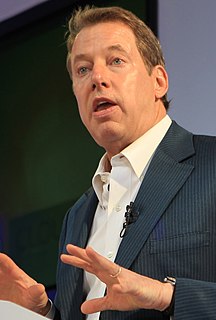A Quote by Steven Chu
Switching to light-coloured roofs and roadways would have the equivalent effect on greenhouse gas emissions to taking one billion cars off the road for eleven years.
Related Quotes
CO2 is a minor player in the total system, and human CO2 emissions are insignificant compared to total natural greenhouse gas emissions. Therefore, lowering human CO2 emissions will have no measurable effect on climate, and continued CO2 emissions will have little or no effect on future temperature....While controlling CO2 emissions from burning fossil fuels may have some beneficial effects on air quality, it will have no measurable effect on climate, but great detrimental effects on the economy and our standard of living.
I am troubled by the lack of common sense regarding carbon dioxide emissions. Our greatest greenhouse gas is water. Atmospheric spectroscopy reveals why water has a 95 percent and CO2 a 3.6 percent contribution to the 'greenhouse effect.' Carbon dioxide emissions worldwide each year total 3.2 billion tons. That equals about 0.0168 percent of the atmosphere's CO2 concentration of about 19 trillion tons. This results in a 0.00064 percent increase in the absorption of the sun's radiation. This is an insignificantly small number.
Health care in the United States is responsible for a tremendous amount of waste and a significant amount of greenhouse gas emissions. For every hospital bed, the American health care system produces about 30 pounds of waste every day; over all, it accounts for about 10 percent of national greenhouse gas emissions.
'Scientific' computer simulations predict global warming based on increased greenhouse gas emissions over time. However, without water's contribution taken into account they omit the largest greenhouse gas from their equations. How can such egregious calculation errors be so blatantly ignored? This is why man-made global warming is 'junk' science.
...if we all turned down the thermostat in our house by just one degree, we would save over £650 million worth of energy and nearly nine million tonnes of carbon emissions every year. That would be the equivalent of taking three million cars off our roads...we can bring about a Green Consumer Revolution in this country to improve our lives, enrich our economy and protect our environment.



































